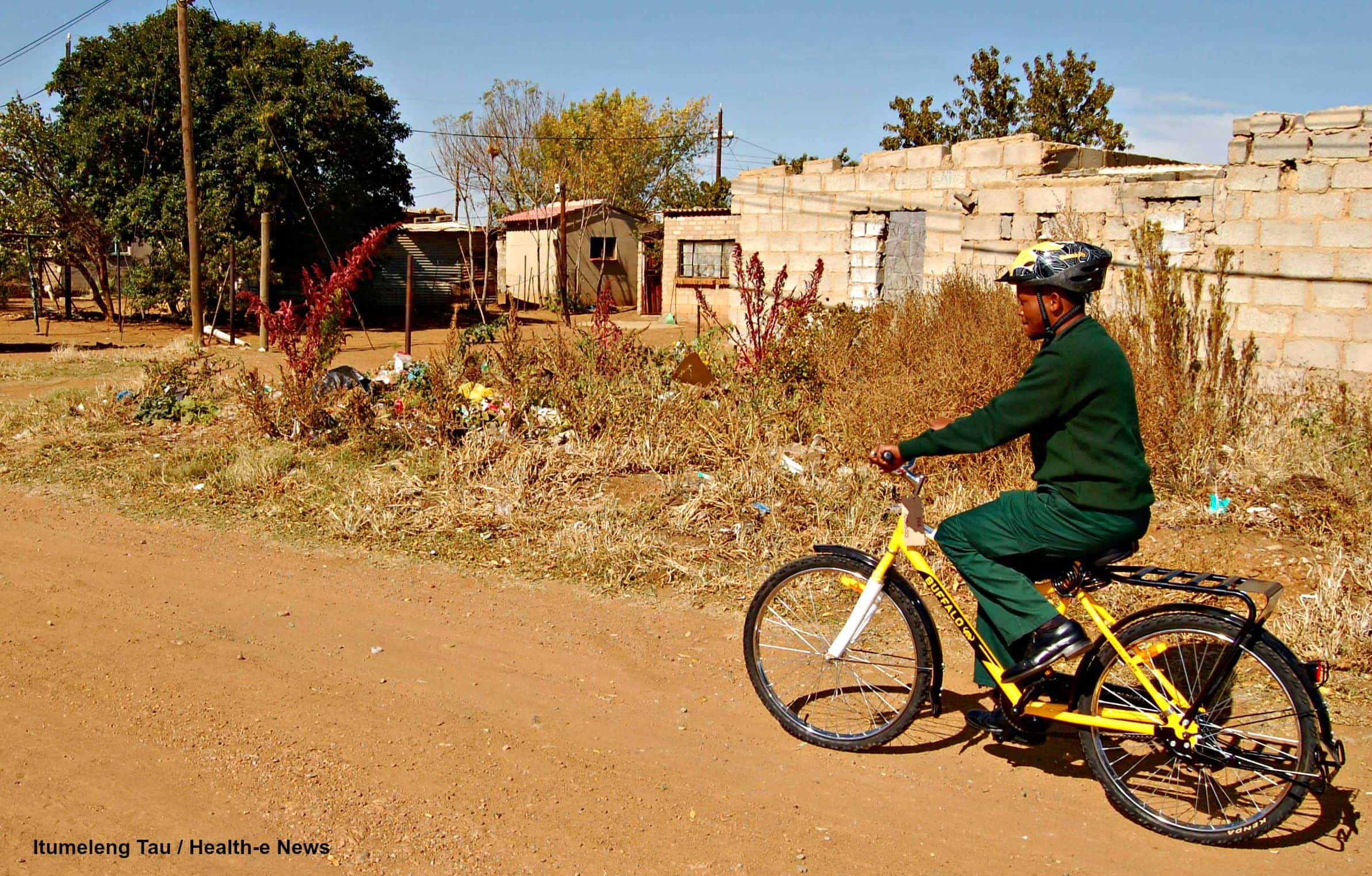A simple holiday gift: Safe cooking stoves for families


In South Africa and – many other low-and middle-income countries – daily exposure to toxic smoke from traditional cooking practices is a major killer that receives little attention. According to The Lancet, 700 million people in Africa use biomass fuel (from animals or plants) to cook, heat their houses and provide light. The fumes created from burning biomass are toxic and a major cause of childhood pneumonia as well as heart disease and lung cancer in adults.
Household air pollution is produced by solid fuels such as wood, charcoal and dung, as well as kerosene, commonly used by families without a reliable electricity supply. Approximately three billion people use these fuels on open fires or traditional stoves. In poorly ventilated homes, the pollutants these fuels create can be up to 100 times higher than tolerable levels, and lead to a variety of health problems, including lung cancer and heart disease.[quote float= right] In poorly ventilated homes, the pollutants these fuels create can be up to 100 times higher than tolerable levels”
Family members spending the most time close to the hearth or over the stove have the highest levels of exposure. The impact is significant – for young children, exposure to household air pollution almost doubles their risk of contracting pneumonia. It is absolutely vital that we help people access modern stoves that don’t harm their health. Doing so will require significant investments in time and resources.
According to the World Bank, the total number of people relying on solid fuels is expected to remain the same through 2030. Lack of access to electricity, which would have a transformative effect on domestic energy use, is one of the largest challenges, affecting 1.2 billion people. Until progress is made on these fronts, it will be up to countries and donors to work with health care workers to prevent, detect and treat respiratory illnesses caused by household pollution. On this, there is reason for optimism.
In the past 20 years, the world has made incredible progress in diagnosing and treating pneumonia by training frontline health workers and expanding access to vaccines, like the pneumococcal vaccines that are being rolled out around the world. We have also seen a remarkable appetite for innovation in the health technology sector, which has led to the development of cheaper and more effective vaccines and new thermoses and refrigerators that can keep vaccines cool in transport to rural communities.
But preventing pneumonia is only part of the battle, and thankfully, political will is beginning to grow around the need to address the issue of indoor air pollution in many low-and middle-income countries.
China, Indonesia and Brazil have all implemented targeted national level programs to support low-income families to transition to cleaner stoves and fuels.[vi] Beyond the health impact, more efficient energy use has economic benefits as well. Given the appropriate incentives, private sector innovation is likely to produce low cost alternatives to traditional stoves and fuels in time.Pneumonia is both preventable and treatable, but millions of families do not have the means to cook, stay warm and eliminate indoor air pollutants caused by rudimentary stoves. As we enter the holiday season, let’s be thankful for what we have and work to ensure that all families live in a safe, warm and healthy home.
- Have an idea for an opinion piece? Email editor(at)health-e.org.za
- Read more opinion and commentary from Health-e News
Author
Republish this article
This work is licensed under a Creative Commons Attribution-NoDerivatives 4.0 International License.
Unless otherwise noted, you can republish our articles for free under a Creative Commons license. Here’s what you need to know:
You have to credit Health-e News. In the byline, we prefer “Author Name, Publication.” At the top of the text of your story, include a line that reads: “This story was originally published by Health-e News.” You must link the word “Health-e News” to the original URL of the story.
You must include all of the links from our story, including our newsletter sign up link.
If you use canonical metadata, please use the Health-e News URL. For more information about canonical metadata, click here.
You can’t edit our material, except to reflect relative changes in time, location and editorial style. (For example, “yesterday” can be changed to “last week”)
You have no rights to sell, license, syndicate, or otherwise represent yourself as the authorized owner of our material to any third parties. This means that you cannot actively publish or submit our work for syndication to third party platforms or apps like Apple News or Google News. Health-e News understands that publishers cannot fully control when certain third parties automatically summarise or crawl content from publishers’ own sites.
You can’t republish our material wholesale, or automatically; you need to select stories to be republished individually.
If you share republished stories on social media, we’d appreciate being tagged in your posts. You can find us on Twitter @HealthENews, Instagram @healthenews, and Facebook Health-e News Service.
You can grab HTML code for our stories easily. Click on the Creative Commons logo on our stories. You’ll find it with the other share buttons.
If you have any other questions, contact info@health-e.org.za.
A simple holiday gift: Safe cooking stoves for families
by Guest Author, Health-e News
November 20, 2015
MOST READ
Social media for sex education: South African teens explain how it would help them
Prolonged power outage leaves hospitals in the dark for two days
There’s more to self-care than scented candles or massages, it’s a key public health tool
Access to clean water and stable electricity could go a long way to addressing rising food poisoning in SA
EDITOR'S PICKS
Related


PHASA 2019 Reflections: The right to health after 25 years of democracy

